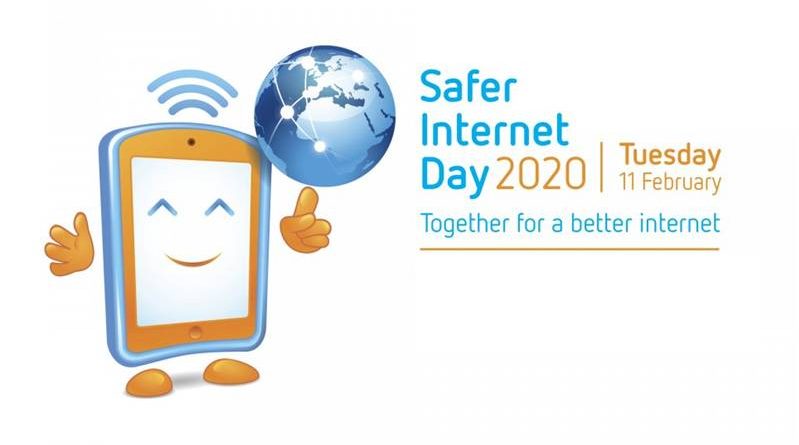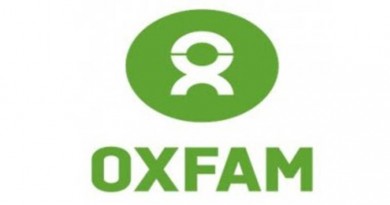Safer Internet Day: Facebook and nine partners across Africa work together for a better Internet
Facebook (www.Facebook.co.za) is partnering with nine non-profit organisations and government agencies throughout sub-Saharan Africa to raise awareness about Internet safety and security for Safer Internet Day, celebrated today, 11 February with the theme “Together for a better Internet”. The partners Facebook is working with this year include:
- Digify Africa (www.DigifyAfrica.com), South Africa
- Phambano Technology Development Centre NPC (www.Phambano.org.za), South Africa
- Diana Schwarz Attorneys (www.DianaSchwarzAttorneys.co.za), South Africa
- Watoto Watch Network (https://WatotoWatchNetwork.org), Kenya
- Paradigm Initiative (https://paradigmhq.org), Nigeria
- Child Online Africa (https://ChildOnlineAfrica.org), Ghana
- Youth First Madagascar (www.YouthFirstMadagascar.org), Madagascar
- Computing and Information Association (https://envaya.org/ciatz), Tanzania
- Asikana Network (https://AsikanaNetwork.org), Zambia
“We’re
committed to ensuring Facebook and Instagram are places for everyone,
especially the youth,” says Jocelyne Muhutu-Rémy: Strategic Media
Partnerships Manager for Facebook in sub-Saharan Africa. “That’s why we
offer a range of tools on our platforms to give people full control over
their experience, and work with our partners to drive awareness about
the practices, resources and tools people can use to protect their
online wellbeing.”
Young people can benefit from the following Facebook and Instagram safety tools and resources:
- New tools on Instagram that filter comments that may be inappropriate, offensive or bullying – including keyword filtering, sensitivity screens, offensive comment and bullying filters.
- On Instagram we’ve created new ways to help stop bullying before it happens. If someone writes a comment or caption for a feed post that our AI detects as potentially offensive, they will receive a prompt that the language used is similar to language that has been reported for bullying. They will then have an opportunity to edit the caption or comment before posting.
- The Instagram Safety Centre (instagram-together.com) is a place where you can learn more about the safety features on Instagram.
- The Youth Portal, which is a central place for teens to get a better understanding of Facebook’s products, hear from other peers, and get tips and advice on controlling their experience. This is part of the safety centre (https://bit.ly/2w5WoGp), a resource for topics like suicide prevention, social resolution and bullying prevention.
- Use of artificial intelligence (https://bit.ly/38lGS7u), to help identify when someone might be expressing thoughts of suicide, including on Facebook Live and Instagram Live.
Facebook has various resources about online safety easily available – learn more by checking out:
- Facebook Safety Page: www.Facebook.com/FBSafety/?fref=ts
- Safety policies: www.Facebook.com/Safety
- Tools: www.Facebook.com/safety/Tools
- Resources: www.Facebook.com/safety/Resources
- Bullying Prevention Hub: www.Facebook.com/safety/Bullying
- Online Wellbeing: www.Facebook.com/safety/Wellbeing
- Help Centre: www.Facebook.com/Help
- Community Standards: www.Facebook.com/CommunityStandards
- How to report something: www.Facebook.com/Report
“We’re committed to ensuring Facebook and Instagram are places for everyone, especially the youth,” says Jocelyne uhutu-Rémy: Strategic Media Partnerships Manager for Facebook in sub-Saharan Africa. “That’s why we offer a range of tools on our platforms to give people full control over their experience, and work with our partners to drive awareness about the practices, resources and tools people can use to protect their online wellbeing.”
Young people can benefit from the following Facebook and Instagram safety tools and resources:
New tools on Instagram that filter comments that may be inappropriate, offensive or bullying – including keyword filtering, sensitivity screens, offensive comment and bullying filters.
On Instagram the company has created new ways to help stop bullying before it happens. If someone writes a comment or caption for a feed post that our AI detects as potentially offensive, they will receive a prompt that the language used is similar to language that has been reported for bullying. They will then have an opportunity to edit the caption or comment before posting.
The Instagram Safety Centre is a place where you can learn more about the safety features on Instagram.
The Youth Portal, which is a central place for teens to get a better understanding of Facebook’s products, hear from other peers, and get tips and advice on controlling their experience. This is part of the safety centre, a resource for topics like suicide prevention, social resolution and bullying prevention.
Use of artificial intelligenceto help identify when someone might be expressing thoughts of suicide, including on Facebook Live and Instagram Live.
Quotes from Partners:
“We share Facebook’s commitment to creating a safer online environment, characterised by community, respect and kindness. It’s a pleasure to once again work with Facebook on this important annual day of awareness.” Qhakaza Mthembu, COO at Digify Africa (www.DigifyAfrica.com), South Africa
“Social media offers so many great opportunities to create, engage and share online. By focusing on Internet safety, we can help the youth really enjoy these benefits while keeping safe from the risks of the online world.” Samantha Barnard, Deputy Director at Phambano Technology Development Centre NPC (www.Phambano.org.za), South Africa
“Digital platforms have opened up wonderful new avenues for learning, working and playing. Focusing on Internet Safety in partnership with Facebook is our contribution to helping the youth to freely and safely enjoy the advantages of online connectivity.” Diana Schwarz, Founder of Diana Schwarz Attorneys (www.DianaSchwarzAttorneys.co.za), Social Media Lawyer and Child’s Rights Activist, South Africa
“With more and more young people in Africa gaining Internet access, it’s important to drive awareness among teens, parents, caregivers and educators about the tools available to stay safe online. We are proud to partner with Facebook in this effort.” Lillian Kariuki, Executive Director at Watoto Watch Network (https://WatotoWatchNetwork.org)
“Technology tools allows young people/youth to access opportunities in the digital space and opens them to a powerful portal to knowledge, growth and community. But it’s also important for NGOs, schools and platforms to work together to help these young people understand how they can get the best and safest experience from this invaluable resource.” Tosin Abolaji, Digital Inclusion Program Manager at Paradigm Initiative (https://Paradigmhq.org)
“The pillars of education have evolved beyond the usual reading, writing and mathematics to include Digital Literacy. The support from Facebook to unpack the discussion across the continent about Digital Literacy and Computer Literacy helps to overcome the technological gaps and is commendable” Awo Aidam Amenyah, Executive Director at Child Online Africa (https://ChildOnlineAfrica.org)
“For young people, digital platforms are all about sharing. By working with platforms like Facebook, we can teach them to do so in a way that is safe and enjoyable.” Rindra Loïc Rabemananjara , Project Officer at Youth First Madagascar (www.YouthFirstMadagascar.org)
“The Internet has been an amazing force for good in the world, but like every powerful tool, it needs to be used in a safe and responsible way. That’s why we are pleased to be part of this education and awareness effort.” Boniphase Malale, General Secretary at Computing and Information Association (https://envaya.org/ciatz)
“Safer Internet Day is a wonderful platform for discussions about how we can all create a better Internet by being kinder, more respectful, and more aware of online safety concerns.” Regina Mtonga, Director & Co-founder of Asikana Network (https://AsikanaNetwork.org)




